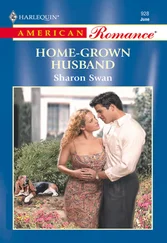Barry Hannah
Geronimo Rex
This one’s for Meridith
and our friends Horace,
Wyatt, and Brown.
In 1950 I’m eight years old and gravely beholding, from my vantage slot under the bleachers, the Dream of Pines Colored High School band. This group blew and marched so well they were scary.
The white band in town was nothing, compared — drab lines of orange wheeled about by the pleading of an old bald-headed pussy with ulcers who was more interested in his real estate than in his music. But the spade band was led by a fanatic man named Jones who risked everything to have the magnificent corps of student musicians he had. Jones was joked about and sworn at by educators, black and white, all over the parish.
Everyone voted on a special bond of fifteen thousand dollars to renovate the gray plank barn sitting in a basin of clay and pine stumps north of town. This was the colored high school. The bond was approved and they dumped it all on Jones, the principal, to administrate. It was well known that he was not a drunkard, lived with his wife, and was struggling to do something with the school. But the reason they voted him the money was that his school building was uglier than anybody could bear — I mean even too ugly for a casual dove-hunter to drive by and see. It looked like an old chalkboard eraser floating in a pool of beer. They awarded Jones the money at a ceremony where the white parish trustees whetted each other to death explaining what unprecedented heroes they were — most of the bond, of course, coming from white taxes.
Well yes Jones was struggling to do something for the school. He happened to be combination principal and band director of Dream of Pines Colored. His band was made up of squirrely, breathless boys and girls who wanted to avoid the physical education class. They whittled their own tonettes out of bamboo and otherwise got by on gift instruments from World War II; had lard-can lids for cymbal and a tuba full of flak holes and so on. Jones was good and sick of this. He was fed up getting the Best for Homemade ribbon at the state band contest every year, and having his band chuckled about by his colleagues, who said here comes Scream of Pines again. Here comes perennial dilapidation on the forced march again.
Jones was a marching band fool. He did take the fifteen thousand, used a thousand of it to repaint the exterior of the school building, and sunk the rest of it in new instruments and uniforms for the band. Then he drafted a hundred and twenty students into the band, which was the entire student body of Dream of Pines Colored, except for sixteen weaklings he left to the varsity football team — these boys were real mewling sluggards — because the school had to at least field a team to give the band an excuse for marching at half-time. The football team went out the fall after the bond money was awarded and got cut up in games to the tune of 70–0. But the score didn’t tell the whole story — these boys were out of breath and puking from just having run out of the locker room.
All the burly and staunch were in the band, with their new blue Napoleonic tunics and shakos, overridden with stripes and scrolled lightning filigree, and they were playing tubas, trombones, French horns, trumpets, and euphoniums, or bombing the hides of fresh, brilliant drums. And didn’t Jones and company have a band. In two months during vacation he rehearsed the hundred and twenty boys and girls. He met with them in a pine-needle clearing above the high school, right in the out of doors, and drilled them by section — now trumpets, now clarinets, now saxophones, etc. — eight hours a day, many of them standing up with their new, unfamiliar instruments, and the girls sitting on Coke cases, until the kids were ashamed to come back next day without their parts down perfect. It must’ve been like the mouth of an oven there in the clearing; the sun over Dream of Pines is so bad you begin thinking it’s an eye looking at you alone. It gums up your days; I can vouch for that. Of course it came down through the usual rank clouds from the Dream of Pines paper mills — and settled on you, dragging down to your body the wet junk of the air.
Jones told them they wouldn’t get to wear the new uniforms, wouldn’t deserve to wear them, until they came in one morning playing faultlessly. In two months, he had them all considering serious life careers in music. Jones was that good. The tone-deaf dummy on cymbals quit smoking so he could conserve his wind, and looked forward to studying at a conservatory after graduation. Three girls quit doing what they used to because of loss of energy on the clarinet. And Harley Butte, the mulatto fellow who tied up with me eventually in a sorrowful way, was fifteen then, and practiced marching and playing the French horn in the privacy of his own home. Harley told me later that the school bus which carried the band to out-of-town games and other parade events became like a church inside, that year. Jones rode in the seat near the driver; there were a hundred and twenty Negroes paralyzed against one another in the seats and aisles. And no more, the smoking; no more, the liquor out of the wallet-sized pepper bottles; no more, the wet finger with agreeing girls, or even any kissing, much — none of the universal acts of high school band trips. They knew they were too good, and had too much at stake. No one wanted to lose a dram of power on his horn. The instruments followed in a trailer truck that Jones rented right out of his own pocket money.
First time they hit the field at an early September foot-ball game, it was celestial — a blue marching orchestra dropped out of the blue stars. The spectators just couldn’t imagine this big and fine a noise. They were so good the football teams hesitated to follow them; the players trickled out late to the second half, not believing they were good enough to step on the same turf that the Dream of Pines band had stepped on. The whites living on the border of the mills heard it, and it was so spectacular to the ear, emanating from near the colored high school, they thought it must be evil. I mean this was a band that played Sousa marches and made the sky bang together. The whites in town put a spy onto them the next Friday night. He found out Jones was billing the group as “The Fifteen-Thousand-Dollar Band” over the public address microphone. This was a slight lie, one thousand of the fifteen having been spent on paint for the unsightly barn. But aside from that, Jones’s band was easily the best marching band, white or colored, in Louisiana. That’s all Harley Butte knew at the time; he didn’t have much privilege of scope to broaden his judgment at the time. He’d only been with the band to the state contest from 1947 to ’50, and he knew they beat everybody down there. Then he sat in an end zone down at Baton Rouge and saw and heard the Bossier City band, which was supposed to be the best white band in the state, and he knew Dream of Pines was better. While the fact probably was, by what I saw and heard that afternoon hiding under the bleachers at the colored football field, Dream of Pines was the best high school band in at least the world.
The way it was affecting me, I guess I was already a musician at the time and didn’t know it. This band was the best music I’d ever heard, bar none. They made you want to pick up a rifle and just get killed somewhere. What drums, and what a wide brassy volume; and the woodwinds were playing tempestuously shrill. The trombones and tubas went deeper than what before my heart ever had room for. And I just didn’t know what to think.
Then Jones, who was standing on the bleacher above me and making it creak viciously, called them to a halt with this “No, no, no” “My ass,” he said under his breath.
Читать дальше












